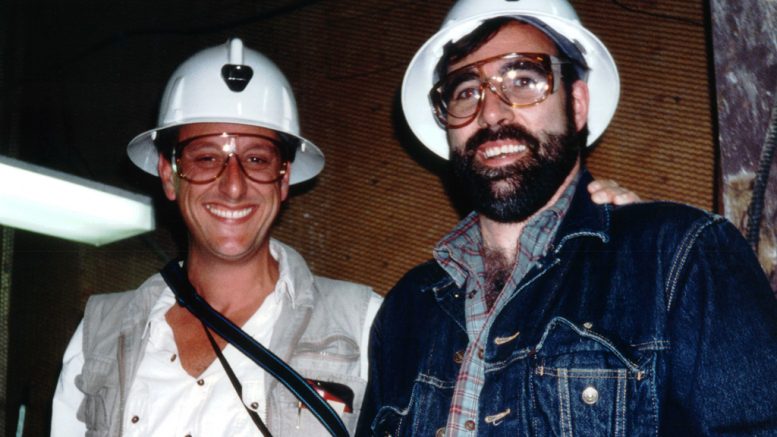Let me get straight to the point: Tales From The Prospect Club is one of the most enjoyable reads of the year. A collection of stories so memorable that reading them evokes a feeling of “what a loss if these weren’t captured in book form for all of posterity.”
In its pages you will meet many of the great characters that have driven the industry over the last 70 years as seen through the lens of the Prospect Club — a legendary investment club made up of industry insiders.
And while you may think this is a book about insiders using their industry smarts to bring in massive stock market returns, it is not. One of the humorous aspects of the book is the consistent disappointment of members about the club’s investment performance. So while no one made the big dough they thought they would when they were invited in, they discovered that the real returns were in the form of comradery and great stories.
Thanks to Kerry Knoll and Nick Tintor, the best of those great stories are captured here. As you read through them you come to realize that this was put together from a genuine desire to share a “front row” perspective on some of the key moments in the mining industry and to do so in a refreshingly undiluted fashion. The frankness of the book may startle some, but therein lies its power. So many of these critical inside stories behind the legendary mines and characters in this industry would be robbed of their vigor if they were presented in any other form than the “straight-up” style that the contributors provide.
That the stories are preserved by those that were there, and in their authentic voices, gives this book a value that is hard to measure.
Anthony Vaccaro, Group Publisher, The Northern Miner Group, Managing Director, Glacier Resource Innovation Group.

Excerpt:
Mining’s Baritone
By Kerry Knoll
The first time I met Bill James was when he worked for me as a bartender. It was the annual picnic for a group called Women’s Association of Mining In Canada. Today you would expect that title to apply to an organization of women engineers and geologists who worked in mining, but back then it was a group of mainly housewives of mining men. At the various mining conventions, these women organized talks on subjects like the pros and cons of plastic surgery, fashion trends and the latest diets. The picnic was their large annual fundraising event that, oddly, was managed almost entirely by their husbands.
As a rookie reporter for The Northern Miner, mining promoter Leon La Prairie somehow saw big things for me in the mining industry, even if I didn’t see them myself. He talked me into running the bar for the event, and furthermore suggested that I write a letter to the presidents of all the big mining companies and ask them to do an hour shift as bartenders. For me, Leon explained, it will give me a chance to socialize with and get to know these guys. Who knew what that may lead to in my career, he added. I followed up and got a great response, with the first “yes” coming from Bill.
When the big day came, it turned out to be one of the hottest September days on record, in the mid-30s and humid as hell. To top it off, the picnic had a record crowd. And miners are a thirsty lot. I bought the same amount of booze as they had in the previous year, but the heat made the beer from the kegs flow like foam and we couldn’t keep the bottled beer cold. Leon kept doing beer runs in his station wagon, but we still couldn’t keep up and there was a mob around the beer tent all afternoon. The other bartenders hightailed it out of there the minute their hour was over. But not Bill. He rolled up his sleeves and worked the whole four hours. At one point he got the bright idea of gathering a couple of the garbage cans, spraying them out with a garden hose, and filling them with beer foam and waiting for it to settle. It worked. As he dipped the cups into the garbage cans and handed the beer across the table, he’d say with his infectious grin, “don’t worry, I certify it’s sanitary.”
It was around that time that Bill had become the new CEO of Falconbridge, a once-successful company that had become bloated and in dire need of a fixing. Bill had earned a PhD in geology at McGill and eventually joined his father’s company, which were engineering consultants to the mining industry. He eventually joined Noranda under that company’s iconic leader, Alf Powis, where he quickly rose to the head of the mining portfolio. He left that job for Falconbridge, and when he took the reins that company was bleeding $2 million a week, which was a boatload of money in 1982.
I went to interview him about the changes he made at Falconbridge, and he gave me an office tour. “It’ll be short,” he said in his always booming voice. “We had three floors and now we have half a floor. We had 23 vice-presidents, of God knows what, now we have six.” He took me to the kitchen and showed me the schedule for making the daily coffee in this giant pot, which previously had been the job of secretaries. Now, he and the other vice-presidents were all on the list. Bill got rid of the special washrooms for the executives, the two private jets, the fleet of Jaguars. He faced down the union and laid off 40% of the staff in Sudbury, where Falconbridge’s main operations were.
Within 18 months he had the company back in the black with its first quarterly profit in ages. A few years later, he bested his former boss at Noranda by purchasing the Kidd Creek mine and smelter for $1.3 billion. He was known for going to drink beer with the union guys in Sudbury.
Anyone who knew Bill could well visualize his run-in with Robert Mugabe in Zimbabwe, not long after the strong man took power from the white Rhodesians in the early 1980s. Rebels opposing Mugabe were attacking Falconbridge’s Blanket gold mine. The miners had no weapons and were running out of food. Bill flew 24-hours straight to Harare and went straight into the dictator’s office. As detailed in the Globe and Mail, Bill’s demands, delivered in his signature loud, gravelly baritone, were simple. He wanted food for his employees and assault rifles for protection. The next morning five truckloads of maize showed up at the mine, along with a dozen AK-47s.
One of the most frightening occurrences in the mining business is an underground rock fall. In 1984, when a rock burst trapped four miners underground in a mine near Falconbridge, Ont., he raced to the scene. Against the advice of safety personnel, he went underground himself and through a small opening held the hand of a lone survivor, 22-year-old apprentice mine mechanic Wayne St. Michel, who was trapped under a giant rock. For more than a day, Bill stayed with the man.
“It’s going great, Wayne, it’s going great,” he told him over and over. “We’re coming for you.” After 27 hours, St. Michel was freed, but, cruelly, he died shortly after in the hospital.
“The only time when I was a kid that I ever saw him cry,” said son John James of his father.
I remember covering one of Falconbridge’s annual meetings, which were normally very staid affairs. There was the dour-looking board of directors in their stuffed suits. I heard Bill had to be talked into putting on a tie. His head of investor relations dutifully handed out his carefully written speech to the press beforehand. Bill didn’t even look at it, he just talked, told stories in that voice of his, and generally put on the most entertaining annual meetings in Toronto. In fact, they got so popular the organizers had to rent larger and larger rooms every year.
During question period, someone asked for more information about a discovery Falconbridge had mentioned in a press release a few months before.
“Well,” said Bill. “I can’t say much about it.” He paused for effect, a born comedian. “But I can tell you this. Do you remember what Adam said the first time he saw Eve naked?” He paused again. The room was silent, apparently nobody recalled what Adam had said. “Well,” he continued, “Adam said, ‘honey, you’d better stand back, because I’ve got no idea how big this thing is going to get’.” The audience howled. The board of directors looked on in horror. Bill asked for the next question.
In the late 1990s, when Bill was running Inmet Mining at the age of 70, John Zigarlick and I were trying to buy the big Izok Lake zinc project from them and put it together with our Back River gold project. Izok Lake was discovered by Texasgulf Sulphur in the 1950s and had resisted several attempts to turn it into a mine. It was only accessible by air, and in the summer the planes landed on the lake while in the winter, ski planes landed on the ice. It took its name from the habit of the exploration crews to spray paint a big IZ OK on the snow if the ice were suitable for landing. Izok was a rich zinc deposit not far from Back River, but it was stranded due to the difficulty of getting its concentrates to market. Somebody would need to build a road and some kind of port. Inmet’s feasibility study said it would cost $400 million to build. John wanted to ex-tend his ice road up to Bathurst Inlet, giving himself another customer and making our Back River deposits more feasible.
I remember Bill telling us about his summer trip in his 9-metre Zodiac boat, with not one but two 400-horsepower engines, exploring the coast of Labrador as if it was an afternoon paddle down a lazy river. He and John made vague plans to take the boat on a thousand mile ride up the MacKenzie River the next summer, but I don’t think it ever came to fruition.
Bill was a delight to negotiate with, razor sharp as he picked up on every nuance, all the while writing everything down in his notebook which looked like those scribblers a junior high student would be using. We secured an option to buy Izok for $40 million but were unable to raise the money as metal prices had slipped into one of their frequent canyons. A few years later, as metal prices began to spike, a company named Wolfden bought the project for $50 million in shares and sold itself to a Chinese conglomerate a year later for $263 million.
Timing is everything.
—Tales from the Prospect Club is available in paperback and Kindle editions through the Amazon website. All profits from book sales will be donated to Mining Matters.



Be the first to comment on "Tales from the Prospect Club; 70 Years of Adventures in Mining"